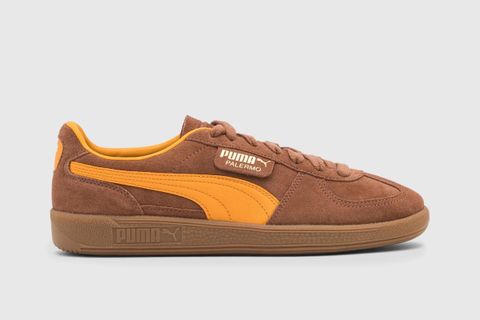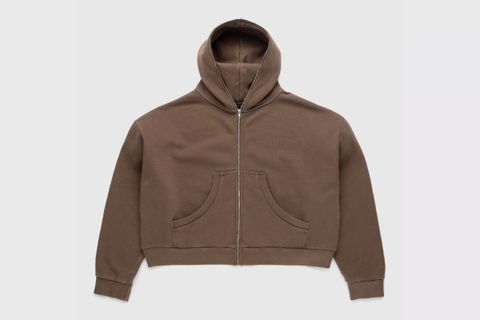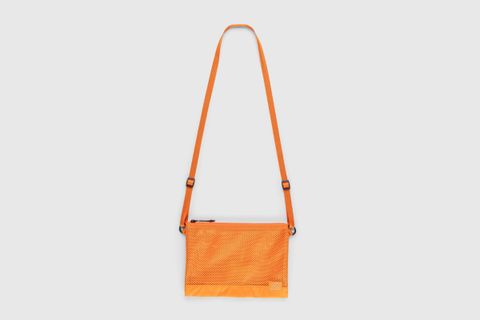MASU Is Fashion's Past, Present, Future
Haven't heard of MASU? You aren't alone. The seven-year-old Japanese brand has only just grasped the ear of the fashion establishment, having held its first Paris Fashion Week runway show on January 17.
MASU's Fall/Winter 2024 presentation was the reward of several years' hard work. Designer Shinpei Goto has transformed his brand over the past few years, tapping a cultural vein that swiftly put MASU on fashion's cutting edge.
The kids are already sold. Fashion's old guard is next.
Founded in 2017 as "masu," pronounced "Em-Ay-Ess-Oo," Goto's label rebranded in 2018 as all-caps MASU but it still hadn't yet found its voice. Looking back on those early collections, you're struck by MASU's smart shapes and wearable wackiness — obvious indications of Goto's Bunka College-honed design talent — but not left with an obvious impression of what MASU is.
I vaguely remember seeing MASU on Instagram in those early days — I basically only use Instagram to find niche Japanese brands — but little else. It didn't leave much of an impression.
That all changed in 2021, when MASU joined the Tokyo Fashion Week calendar with its first runway show for the Fall/Winter 2021 season. That collection was a perfect mission statement for what Goto's brand would come to stand for: Y2K kitsch, material experimentation, and indie-sleaze silhouettes wrapped in a genderfluid menswear package.
Now-established MASU motifs include campy prints — retooled Disney castles, Gaultier-esque angels — flared trousers, moto gear, sparkly scarves, exposed underwear, punkish jackets, louche trackpants. If all those ideas sounds vaguely familiar, it's because this is all what's happening in fashion right now. MASU simply hit on these cues years prior and warped them to its liking.
MASU found its voice at the perfect moment. By 2022, it'd been noticed by an international audience of terminally online fashion dudes (and their stylists).
In particular, MASU's knack for a Instagrammable statement piece — fur-trimmed caps, popcorn sweaters, sequin-studded jeans — has made famous fans like A$AP Rocky, Evan Mock, Bloody Osiris, and perpetually tapped-in designer Matthew Williams, who've all in turn introduced it to their fans that now flood MASU's social media page begging for a restock of sold-out items.
IYKYK streetwear label Seventh Heaven took notice and linked with MASU for a rare collaboration released at tastemaking Tokyo boutique NUBIAN, a veritable hub of up-next designers.
MASU doesn't merely trade in quirk for quirk's sake, to be clear, though the vibe ain't self-seriousness, either.
Its clothes, which range from sober suiting to grunged-out sk8r boi, are well-made in Japan and thoroughly popular throughout the country. MASU's success recalls forebears like READYMADE and Doublet, which enjoy as much domestic success as they do out West thanks to quality clothes and a legible POV.
In late 2023, MASU even snagged the 2024 Fashion Prize of Tokyo, an award that offers financial support for popular young Japanese brands that grants them access to Paris' rarefied catwalks and showrooms connected to international buyers. Hence MASU's FW24 Paris Fashion Week presentation.
The FW24 collection is as good a time to buy into MASU as any. It juxtaposes archetypal MASU bits like sequined track sets and baggy jeans against more mature fare, like velvet blazers and blacked-out stadium jackets. Art was provided by Verdy, Japan's current youth culture king.
MASU is fashion's next-gen. It's making the clothes that kids are buying now, fueled by nostalgia for an era they barely remember.
Ironically, as throwback and memetic as it all is, MASU is also what fashion's future looks like. Yesterday's clothes, tomorrow.


